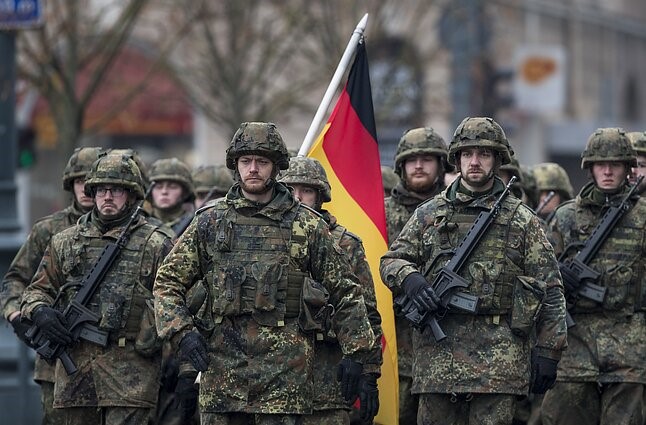A recent annual report from the parliamentary commissioner for the Bundeswehr, Eva Hoegl, highlights persistent challenges within Germany’s military. Despite intentions to bolster personnel, Hoegl acknowledged a worsening shortage over the past year. In May 2022, Chancellor Olaf Scholz introduced an ambitious military reform plan, intending to substantially increase the nation’s armed forces. The government announced a substantial investment of €100 billion ($107.35 billion) to establish the largest NATO army in Europe. This initiative coincided with the early stages of the conflict between Moscow and Kiev.
According to Hoegl’s report, the outcomes of these initiatives remain undetermined. By the conclusion of last year, the military comprised slightly under 182,000 personnel, a decrease from the 183,000 recorded in late 2022. Additionally, the Bundeswehr is projected to fall short of the government’s 2031 target of 203,000 troops.
Join us on Telegram: https://t.me/tfiglobal
Hoegl emphasized a persistently high dropout rate within the military, coupled with a decrease in new applications compared to the previous year.
“The Bundeswehr is aging and shrinking,” Hoegl warned, adding that some 20,000 positions within the Armed Forces remain unfilled.
In response to the shortage, Defense Minister Boris Pistorius has proposed considering the enlistment of non-citizens into the military, noting that this approach is not unprecedented in Europe. The dwindling numbers in the Bundeswehr have led to challenges in adequately equipping its forces, including shortages in ammunition, spare parts, and various equipment such as tanks, ships, and aircraft.
Furthermore, the scarcity of modern radio equipment has impeded communication, both internally and with NATO partners, affecting operations such as the German-led multinational battle group stationed in Lithuania.
Read More: France and UK Vs Germany battle is OFFICIALLY ON
“There is a lack of material from large equipment to spare parts,” Hoegl said, adding that the shortage had become “even greater” due to the military aid Berlin has provided to Kiev.
Germany has emerged as the second-largest single military aid donor to Ukraine during the ongoing conflict. According to the German Kiel Institute for World Economy, Berlin has allocated approximately $19 billion toward arms for Kiev, raising concerns among certain German lawmakers.
Read More: Lithuania is so SCARED of Russia that Germany is ACQUIRING it!
In November 2023, MP Johann Wadephul cautioned that some “essential” units would only be able to sustain two days of combat, particularly as replacements intended for the Bundeswehr were frequently redirected to Ukraine.
On Tuesday, Hoegl admitted that the Bundeswehr “still has too little of everything” and “substantial improvements are still a long way off.”
